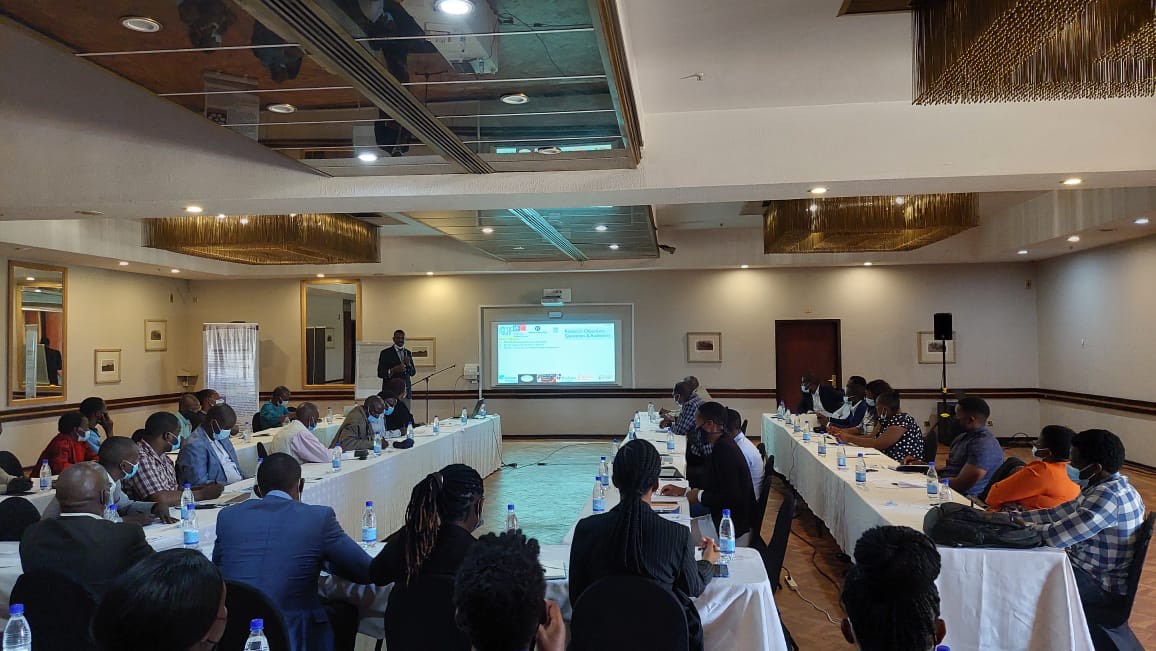On 17 and 24 February 2022, the Development Governance Institute (DEGI) convened Inclusive Urban Infrastructure (IUI) policy seminars in Masvingo and Harare respectively. The seminars were jointly convened with Dialogue on Shelter and the Zimbabwe Homeless People’s Federation. Both seminars were held under the theme ‘Enhancing understanding of emergent settlements, effective policy making and implementation for equitable and sustainable settlements’.
A total of 117 stakeholders attended the seminars. Stakeholders were from a wide variety of backgrounds, including: residents of the settlements; national, provincial and local government officials; university-based researchers; land developers; housing finance institutions; and other built environment agencies.
The focus of the seminars was on presenting preliminary findings of the ongoing IUI research activities regarding how people in emerging settlements access housing, water, sanitation, energy, communications and transport. The specific and general experiences of residents of the six study settlements in Masvingo (Old Mucheke and Victoria Ranch) and Harare (Budiriro 5 Extension, Churu Farm, Hatcliffe Extension and Hopley) were shared. As well as sharing the preliminary findings of the research, DEGI and other partners sought feedback from stakeholders regarding past and future research activities.
Emerging research messages:
- There is a substantial level of settledness. Residents are not overly anxious as they are counting the years they have lived in the settlements and also find comfort from state infrastructure investments.
- A good foundation of self-provisioning has been established across different infrastructure grids for the state to build on. There are, however, risks of localised displacements where residents are settled in environmentally fragile areas or on land reserved for institutional services like schools
- There are multiple forms or ‘papers’ for securing tenure that have been successfully piloted. However, these have some limits, especially with regard to scaled and inclusive extension of some infrastructure grids.
- There is inadequate state facilitation of housing development owing to a fragmented public sector. In some settlements the institutional void left by the state has been occupied by agencies that are unable to fully help catalyse and regularise infrastructure provision.
- Local organisations in the settlements are of variable sustainability and performance. This precarity seems inevitable in environments where state facilitation is inadequate.
Emerging policy implications:
- Define and update appropriate land/housing ‘paperwork’. This may involve consolidating appropriate alternative/intermediate versions in use.
- Inclusively mobilise local organisations around infrastructure and service expansion models suited to different settlements and social groups.
- Harness the self-organised financial investments currently being directed towards ‘informal’ services through carefully modelled state-led infrastructure improvement initiatives. This may require state-enabled participation of local and international big/formal infrastructure financing.
Both seminars helped to pave the way for the next series of research activities. Key stakeholders confirmed their interest in being engaged around the themes of: appropriate framing of financing inclusive urban infrastructure; understanding the many different ‘property access modes and papers issued’; and understanding and addressing the risks to tenure security and public safety issues. Representatives of the Infrastructure Development Bank of Zimbabwe invited Councils, as well as other actors meeting requirements for financial assistance, to come forward and explore partnerships in housing and infrastructure provision.
Click here to access the presentation for the Harare policy seminar.
